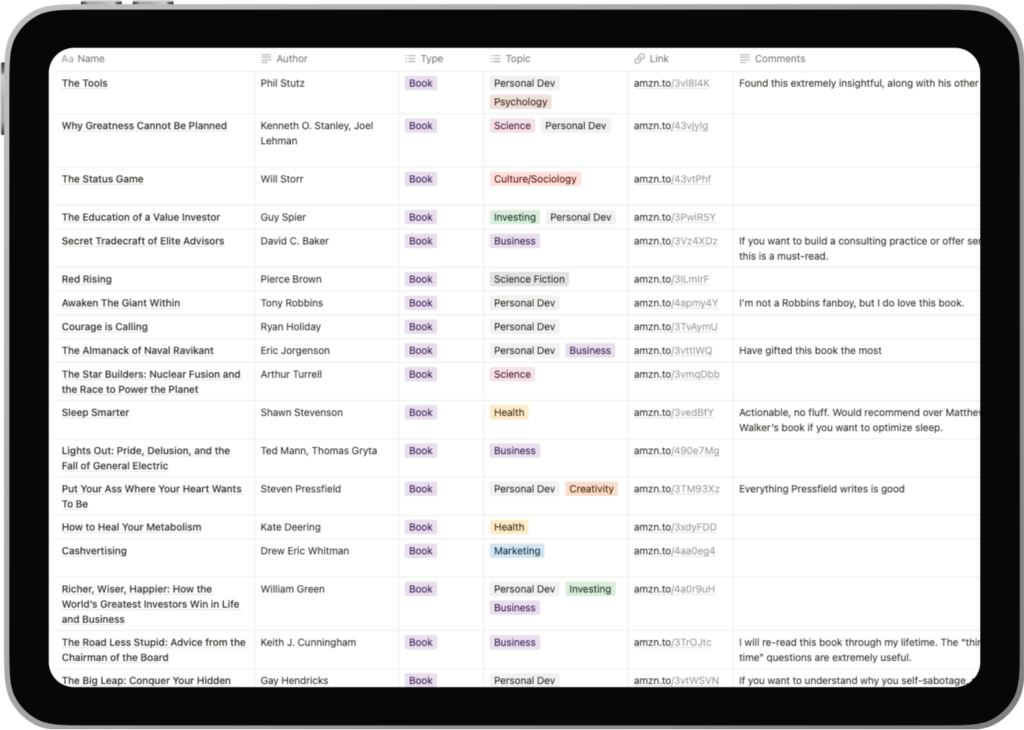I wanted to improve my copywriting. My business coach gave me some advice:
“Spend an hour every morning for the next 6 months copying these sales letters out… by hand.”
I remember thinking, “By hand? That’s stupid. I can type 100 words per minute. Pen and paper is so inefficient.”
What I didn’t realize is that efficiency is not the point. When it comes to thinking, writing, planning and learning—effectiveness is what matters.
“If you’re efficient, you’re doing it the wrong way.”
– Morgan Housel, Same As Ever
It wasn’t until I began this practice of copying sales letters out by hand that I realized how powerful it was. The structures of sales arguments embedded deeply into my mind. I could “feel” the sales letter in a way that I never felt when typing. Slower? Yes. Inefficient? Sure. But far more effective.
Using pen and paper forces you to slow down and think about what you’re writing. It helps you learn and remember better. Your brain operates differently when writing by hand compared to typing, sparking creativity that might otherwise be dulled.
“Writing things out by hand has a logic to it. When I’m taking notes, when I’m scrawling with my fountain pen on a card—I’m thinking more deeply than when typing on a computer…The handwriting process links closer and faster to the way my brain works…”
— Robert Greene
It’s why Ryan Holiday, Robert Greene, Billy Oppenheimer and many others use a variation of The Notecard System. Writing out quotes and passages by hand on index cards. A system I’ve also recently adopted.
The friction that pen and paper adds is a good thing. It encourages discernment and selectivity. When all you do is copy and paste, or auto-sync highlights from Kindle to your note-taking app, there’s little friction. There’s no energy required. And so you capture a lot of mediocre material.
“If you can’t talk yourself into using your energy to write or type something out, it’s probably not worth capturing.”
– Billy Oppenheimer (The Notecard System)
As the famous productivity guru Bruce Lee once said, “I fear not the man who has 10,000 notes, but I fear the man who has 100 great notes deeply embedded in their psyche.”
We have centuries of proof that great work can be done with nothing more than pen and paper. It’s lindy. And it remains to be seen whether feature-packed second-brain/PKM apps actually result in us doing better creative work.
My hunch is that they won’t. At least not directly. Not only does a purely digital approach lack the useful friction and slowness of using pen and paper, it’s also becoming increasingly harder to remain undistracted in the digital world. You can’t browse social media on a physical notebook, but it’s only a click away when you’re on your laptop.
“What you choose to load into your brain first thing in the morning is the most precious, precious space. Perhaps your first few hours should be offline with pen and paper, writing things out. Some offline time is good, so you don’t just immediately jack into the internet. I write a lot of stuff longhand because it forces focus. There are zero interruptions. Later in the day, I take those pieces of paper, a draft of a book chapter or something, and type it in a digital file.”
— Balaji Srinivasan, The Anthology of Balaji
As we venture deeper into the digital world, those who can disconnect, focus, slow down, think deeply, and be discerning will have an immense competitive advantage. Pen and paper helps you get there.
A bunch of other thoughts:
- My insight-to-time-spent ratio is way higher when I think with pen and paper as opposed to typing. That goes for journalling, ideating, outlining essay ideas, and thinking through problems. It seems slower, but in the grand scheme of things, I find I’m far more productive because the quality of my thinking is that much better.
- Most of us spend too much time looking at screens. We think we don’t have a choice, because we’re knowledge workers. But a significant chunk of your work could likely be done away from the computer with pen and paper. And it can likely be done better too.
- I retain far more of what I write out by hand. Notes, quotes, goals, etc. The real benefit of digital tools is search capability. But the physical notes you write lodge themselves inside your psyche in a way that digital notes don’t.
Thanks for reading!
-Sam

